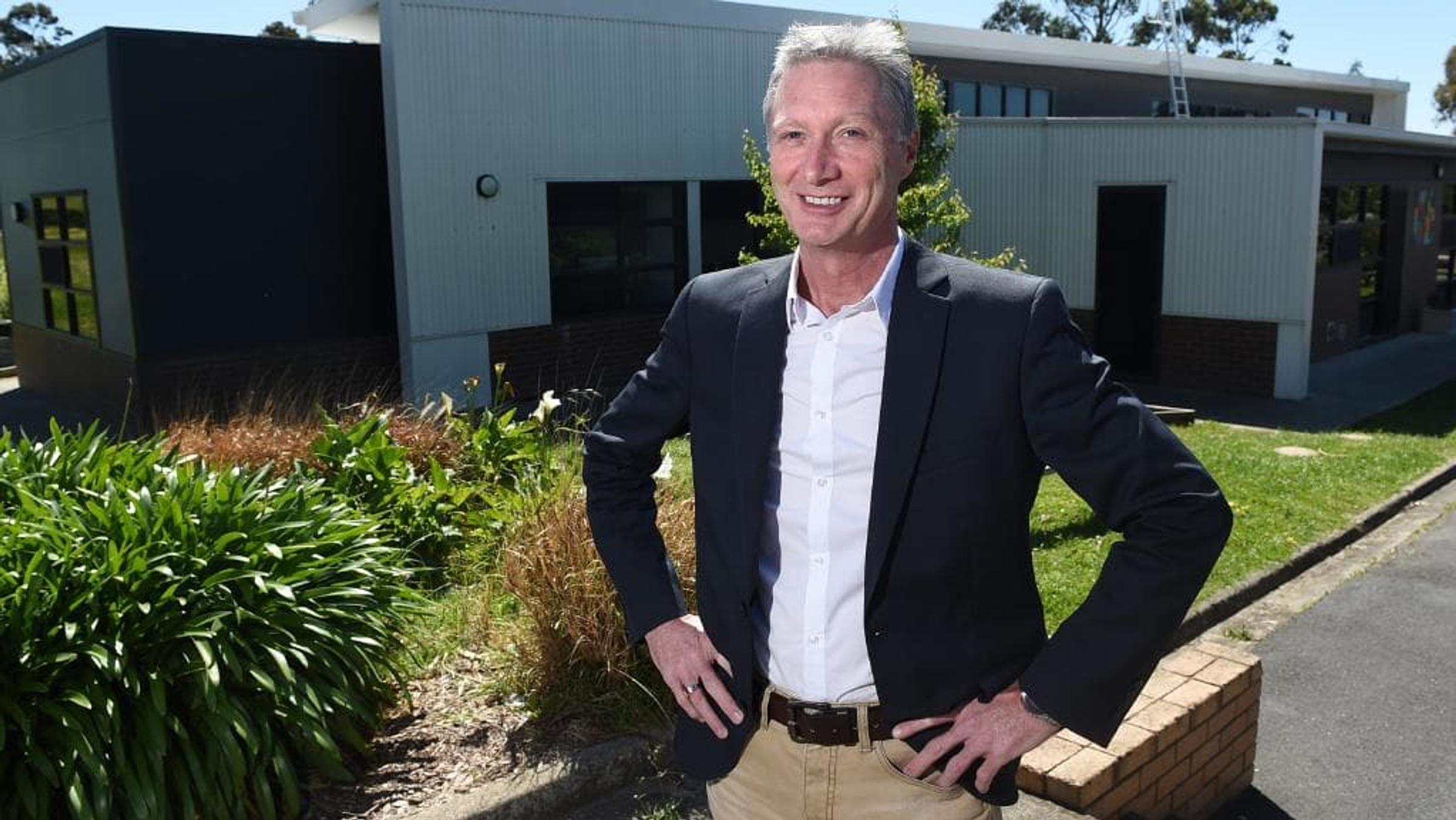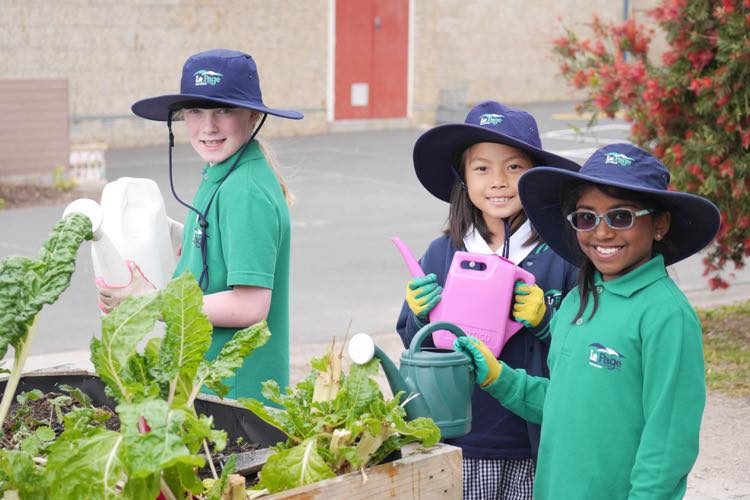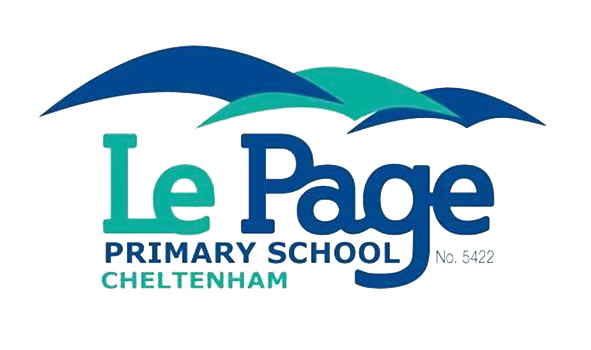Principal’s Welcome

Welcome to Le Page Primary School
Leadership is the umbrella term to encompass the many character traits and basic life competencies that parents, business leaders, and educators are voicing as the desired skills necessary to thrive in the 21st century. Leadership is a concept we don’t normally consider when thinking of young children. However, young children are very capable of learning leadership skills and using them at home and at school. By developing well-rounded children who know their strengths, we help them to unleash their potential to lead their own lives and to influence others.
Through the use of the 7 Habits, students begin to realise that they have control over much of what happens in their lives and can be true leaders. Their choices can affect their day, their relationships, and their future. The 7 Habits empowers even young students to stop and think about their choices and the different outcomes that may come with those choices. Based on timeless principles, the 7 Habits become the “hands-on” tools students can rely on while on their journey to becoming leaders – of themselves and of others.
When you visit us, you will see, hear and feel the difference we are making in the lives of our students.
George Danson
Principal
School Profile
Established in 1995, Le Page is an attractive school on a vast property comprising green fields, adventure playgrounds and ball courts.
Adjacent to the school is a football oval, netball courts and parkland. Located in Argus Street, Le Page Park is the hub of extra-curricular and sporting activities in Cheltenham. Weeknights and weekends are a buzz with several associations coming together for sporting competitions. Out of school hours, the school facilities are home to Spanish courses, martial arts, and orchestra workshops. Le Page Primary School is the home of the Gould League, an environmental education group. A section of the main building boasts environmentally themed rooms and exploration spaces where students learn about sustainability and recycling.
In 2017, newly appointed principal came with a new vision and mission. The school was relaunched and instantly captured the interest of local families. Le Page Primary has begun a new and exciting journey. A small school, with a country-school feel, is destined for state-wide recognition. With a new and inspirational leader, and a new dynamic staff, it is projected Le Page Primary School will experience exponential growth and lead the way in educational excellence.

Listen to Our School Song!
Le Page School Song
At Le Page we love to learn and love to work and play
At Le Page there’s lot of things we learn throughout the day
The teachers see the leader in me and we can see it too
You can see the 7 Habits in everything we do
So join in the chorus as we come together and sing
Every child here has a gift they bring
We’re all special in our own way
And we’re gonna be a leader today
Yes we’re gonna be a leader today
Staff
Principal:
George Danson
Assistant Principal:
Courtney Mason
Business Manager:
Libby Mason
Administration:
Brooke Sheppard
Classes & Teachers
00A Narelle Diggins
00B Michaela Cohen
12A Jacqueline Buchan
12B Chloe Luff
12C Samuel Downs
12D Hannah Jackson
34A Serena Lowrie
34B Richard Earl
34C Olivia Pinzone
56A Madeleine Simos
56B Samuel Boontjes
& Gemma Baker
56C Nicholas Duckett
Disability & Inclusion:
Jennifer Hayes
Wellbeing:
Lisa Webber
Leader in Me:
Nicholas Duckett
Physical Education:
Jarrod Bradley
Health:
Jarrod Bradley
Art:
Shelley Bradley
Culture:
Shelley Bradley
Music:
Susie Davies-Splitter
Auslan:
Karen Dragatsikas
EAL:
Katy Kritharidou
F-2 Tutor:
Julie Taylor
3-6 Tutor:
Marisha Telegin
Education Support:
Shellie Ryan
Beth Ervine
Zehra Erczmann
Kat Ruddock
Kelleigh Caulfield
Giancarlo Siclari
Judit Gallego
Katy Kritharidou
Thomas Picking
Matilda Currie
Claudia Jenkinson
Anna Ottersbach
Nick O’Donovan
Anna Bowyer
Isa Johnson
Lara Vaksman
Emily Dare
Amber Stelling
Vision, Mission, Attitude & Habits

Our Vision
There is a prosperous path for every child. Each journey is theirs to lead. There is a place, in which every child can shine.
Our Mission
Identify the talent, develop the confidence and create the leader.
Our Attitude
Gratitude:
Be thankful for what we have.
Empathy:
Practice random acts of kindness.
Mindfulness:
Keep in the present moment.
What do we live for, if it is not to make life less difficult for each other?
Our 7 Habits
Be Proactive
(I’m in charge)
Begin with the End in Mind
(have a plan)
Put First Things First
(work first then play)
Think Win-Win
(everyone can win)
Seek First to Understand Then to Be Understood
(listen before you talk)
Synergise
(together is better)
Sharpen the Saw
(balance feels best)
Plans & Reports
2021-2024 School Strategic Plan
2024 Annual Implementation Plan
2023 Annual Report
Find operational policies and guidance for schools from the Department of Education and Training at: https://www2.education.vic.gov.au/pal
Policies & Standards
Statement of Values & School Philosophy
Bullying Prevention 05.2021
Camps & Excursions
Child Safety Code of Conduct 2021
Child Safety Policy 05.2021
Policies & Standards (cont’d)
Child Safety Poster
Child Safety Recruitment 2021
Child Safety Responding & Reporting Obligations Policy & Procedures 2023
Complaints Policy 2022
Mobile Phones & Devices Policy 2020
Privacy Collection Statement
Student Behaviour Management (Discipline)
Uniform Policy
Volunteer Policy 05.2021
Gould League’s
Sustainability Excursion Centre

Supporting schools to embed sustainability since 1909
Gould League’s one-of-a-kind Sustainability Education Centre now resides within Le Page Primary (since 2016) and provides an immersive learning environment for students visiting on excursion.
The Centre’s engaging themed rooms include the following:
- The Incredible Shrinking Machine – an amazing journey to the secret inside workings of a compost bin complemented by a sound and light show.
- Wastelands – provides an interactive exploration through the world of natural resources, rubbish, littering and recycling.
- 3R’s Room – features a modern mini-mart, an ‘Olde Worlde’ shop, e-waste display, recycling relay bins and more.
- Worm Room – home to our working worm farms to sift through and explore!
- Microscope Pit – for observing living things up close in real time with a TV Video Microscope.
- Drama Room – where science and sustainability concepts come to life complete with an array of costumes and props.
- Minibeast garden – perfect for observing and collecting urban biodiversity of the plant and invertebrate variety.
- Plus some friendly resident Stick Insects!
Gould League equips teachers to integrate science, geography and sustainability into their curriculum, connects students with their natural world and empowers the community to live more sustainably.
Learn more at the Gould League website
